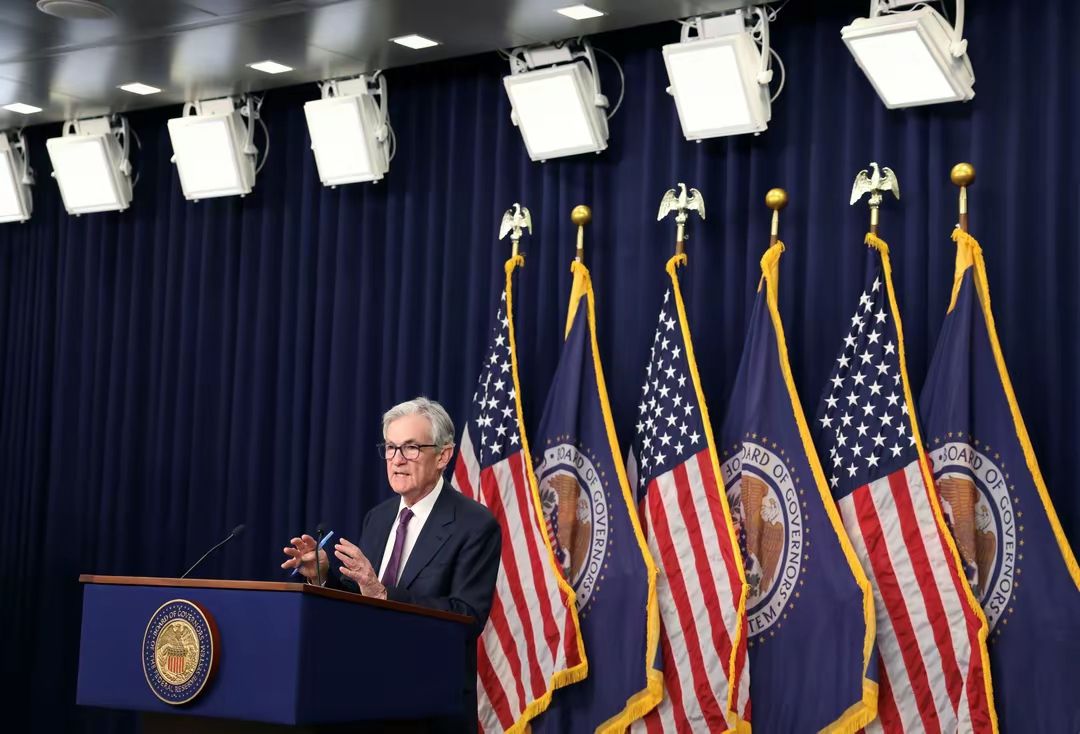
In the global economic pattern, the monetary policy trends of the Federal Reserve are like a heavy stone thrown into the calm lake, causing ripples, and the decisions of each of its interest rate meetings are attracting worldwide attention. The recent decision of the Federal Reserve has once again become the focus of the global economy.
The Fed's 25 basis point interest rate cut this time has multiple deep-seated reasons behind it. Firstly, the growth of the US economy is facing numerous pressures. From domestic data, a series of economic indicators have shown that the driving force of economic expansion has weakened recently. For example, the Purchasing Managers' Index (PMI) for the manufacturing industry continues to hover around the boom bust line, with some periods even lower than the boom bust line, indicating weak growth in manufacturing activity, reduced enterprise orders, and limited expansion of production scale. At the same time, there are also signs of a certain degree of cooling in the real estate market, with a slowdown in the growth rate of housing sales and new construction, which has correspondingly weakened the driving effect on related upstream and downstream industries.
Secondly, inflation is also a key factor affecting the decisions of the Federal Reserve. Although the inflation data in the United States has shown a easing trend for some time, there is still uncertainty in inflation expectations. On the one hand, fluctuations in energy prices, adjustments in global supply chains, and tight labor markets may all exert potential upward pressure on prices. If the inflation rate is too low, there may be a risk of deflation, which is equally harmful to the economy and can lead to a series of problems such as decreased corporate profits, reduced investment, and rising unemployment rates. Therefore, the Federal Reserve needs to maintain price stability within a reasonable range by cutting interest rates, avoiding the negative impact of high inflation on the economy and residents' lives, as well as preventing deflation.
The impact of the Federal Reserve's interest rate cuts on the global economy is multidimensional and complex. In terms of global financial markets, once the news of interest rate cuts was announced, it first triggered fluctuations in global stock markets. The three major indexes of the US stock market experienced varying degrees of fluctuations after the news was announced, reflecting the market's early digestion of expectations of interest rate cuts and complex judgments about the future economic outlook. Emerging market stock markets have also been affected, with some countries experiencing significant fluctuations in their stock markets due to expected changes in capital flows. For the bond market, the yield of US treasury bond bonds will decline accordingly, which will affect the yield curve of the global bond market, prompting investors to readjust their bond portfolios. The bond attractiveness of some emerging market countries may be relatively increased, but the risks they face are also increasing, because the uncertainty of capital flows is increasing.
In the field of international trade, the impact of the Federal Reserve's interest rate cuts should not be underestimated. As the world's largest economy and important trading power, the adjustment of monetary policy in the United States will change the global trade pattern. On the one hand, the depreciation of the US dollar has led to a relative decrease in the prices of American goods in the international market, which may promote US export trade and increase the demand for imported American goods from other countries. For example, the sales of American agricultural products, high-end manufacturing products, etc. in the international market may increase. On the other hand, for export enterprises from other countries, they are facing more intense competition from American products, and some products that originally had price advantages in the international market may lose some market share.
From a global investment perspective, the Federal Reserve's interest rate cuts will affect the direction of international capital flows. After the interest rate cut, the return on assets in the United States has relatively decreased, which will prompt some international capital to flow out of the US market and seek higher return investment opportunities. Emerging market countries often become potential destinations for capital outflows due to their relatively fast economic growth, large market potential, relatively low asset prices, and certain investment attractiveness.
The Federal Reserve's interest rate cut is a decision made based on a comprehensive consideration of its domestic economic situation and the global economic landscape. This decision has a wide-ranging and far-reaching impact on the global economy, involving multiple fields such as financial markets, international trade, and international investment, and is accompanied by many uncertainties and risks. Countries around the world need to closely monitor the policy trends of the Federal Reserve, formulate corresponding policy measures based on their own economic development status to address potential challenges, and seek stable development in the complex changes of the global economy.

On December 29th, Mar-a-Lago in Florida, USA, witnessed a highly anticipated diplomatic meeting - a dialogue between US President Trump and Israeli Prime Minister Netanyahu.
On December 29th, Mar-a-Lago in Florida, USA, witnessed a h…
SoftBank Group announced on Monday that it has agreed to ac…
Recently, the US State Department issued a visa ban, adding…
On January 20, 2025, just 13 days after taking office, Trum…
On December 19, 2025, the U.S. Department of Energy, along …
The relationship between the Trump administration and the U…